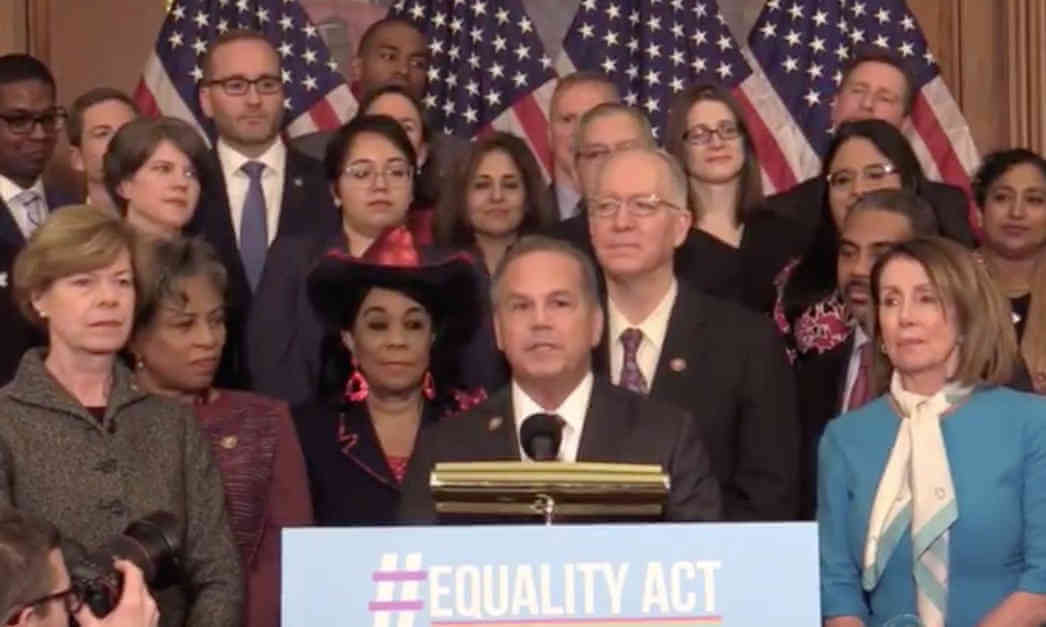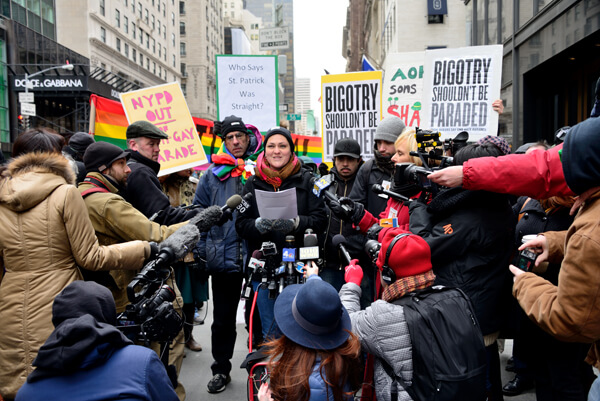A major LGBTQ nondiscrimination bill known as the Equality Act has been re-introduced in both chambers of Congress, setting up potentially historic votes on a bill that would usher in wide-ranging protections for the community.
The measure, which has been led in the House of Representatives by out gay Congressmember David Cicilline of Rhode Island and in the Senate by Jeff Merkley of Oregon, both Democrats, would amend the Civil Rights Act of 1964 and related federal laws to ban discrimination on the basis of sexual orientation and gender identity in housing, employment, public education, public accommodations, federal funding, credit, and in the jury system.
A broad coalition of Democratic members of Congress joined Merkley, out lesbian Senator Tammy Baldwin of Wisconsin, Senate Minority Leader Chuck Schumer, and House members Cicilline and Speaker Nancy Pelosi, as well as Pennsylvania Republican Brian Fitzpatrick, during an afternoon announcement on March 13. Manhattan Congressmember Jerrold Nadler, chair of the House Judiciary Committee, also attended.
The bill is overwhelmingly supported by Democrats, and has two Republican co-sponsors — Fitzpatrick in the House and Maine’s Susan Collins in the Senate.
Cicilline stressed that the LGBTQ community is simply seeking the same equality as other communities covered by the 1964 Act. “We are asking for no more and no less, and we will get this bill passed,” he said. “The time has come for full LGBTQ equality. As Americans, we all know that discrimination is wrong. Let’s prove it by passing the Equality Act.”
Clearly anticipating waves of criticism from conservatives, Cicilline added, “We cannot use claims of religious freedom to be used to discriminate against an LGBT individual.”
The Equality Act, first introduced in 2015, has faltered at the committee level in both chambers. Now the Democratic-controlled lower chamber is poised to finally pass the bill. Even though it faces slim prospects in the GOP-controlled Senate, Merkley insisted it should be given a floor vote there.
The Equality Act would implement the protections across the nation at a time when LGBTQ nondiscrimination measures vary widely from state to state. According to the Human Rights Campaign, half of LGBTQ Americans reside in the 30 states without comprehensive anti-bias protections.
More than 160 major corporations now support the Equality Act, compared to only three that were on board the day it was first introduced four years ago. The companies who have signed on employ more than 8.5 million people.
The Equality Act has roots in New York, where Congressmembers Ed Koch and Bella Abzug, in 1974, first proposed a comprehensive amendment of the 1964 Civil Rights Act to include protections on the basis of sexual orientation, sex, and marital status. The 2019 version would also protect Americans on the basis of gender identity.





































